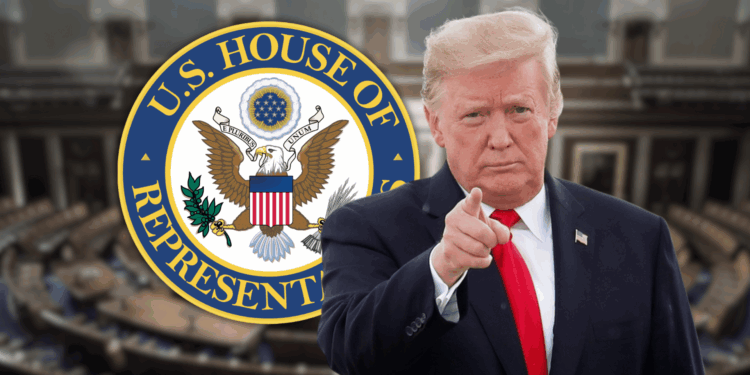- House passed a key procedural vote advancing the GENIUS and CLARITY crypto bills after an initial failure.
- The GENIUS Act, focused on stablecoins, could see a final vote by Thursday; the CLARITY Act still needs Senate approval.
- The push comes amid Republican and Trump administration efforts to finalize digital asset rules before the August recess.
The U.S. House of Representatives has revived momentum for comprehensive crypto legislation, advancing two high-stakes bills— the GENIUS Act and the CLARITY Act—after initially stumbling on Tuesday. On Wednesday, lawmakers narrowly passed a procedural vote 215-211, unlocking the next steps toward floor debate and final votes.
What the GENIUS Act Would Do
The GENIUS Act, which already passed the Senate, sets out to establish a national regulatory framework for stablecoins. It would require dollar-backed stablecoins to be fully collateralized with U.S. dollars or similarly liquid assets, enforce annual audits for any issuer with a market cap over $50 billion, and impose new guidelines for foreign-issued stablecoins operating within the U.S.
The bill’s primary goal is to bring structure and transparency to the rapidly growing stablecoin market, ensuring financial stability while encouraging innovation. Lawmakers backing the bill argue that it will help the U.S. maintain its leadership in financial technology as stablecoins continue gaining global traction.
Inside the CLARITY Act
While the GENIUS Act focuses on stablecoins, the CLARITY Act tackles broader digital asset oversight. It would clarify which cryptocurrencies are regulated by the SEC and which fall under the CFTC’s jurisdiction. Additionally, it would impose stricter disclosure requirements on retail-facing crypto platforms and require the separation of user and corporate funds—an issue at the heart of several recent crypto scandals.
The CLARITY Act has not yet passed the Senate, but its advancement in the House is seen as a major step forward for industry-wide regulation. It’s being watched closely by market participants hoping for clearer compliance guidelines in a regulatory gray zone.
What Happens Next?
With Wednesday’s procedural win, the GENIUS Act could be up for final voting in the House as soon as Thursday evening. If approved, it would head straight to President Trump’s desk for signature. Meanwhile, the CLARITY Act still faces a more uncertain path in the Senate, though bipartisan discussions are reportedly ongoing.
The push to advance both bills has been heavily backed by Republican lawmakers and the Trump administration, who are seeking to lay a foundation for crypto regulation before Congress recesses in August.














